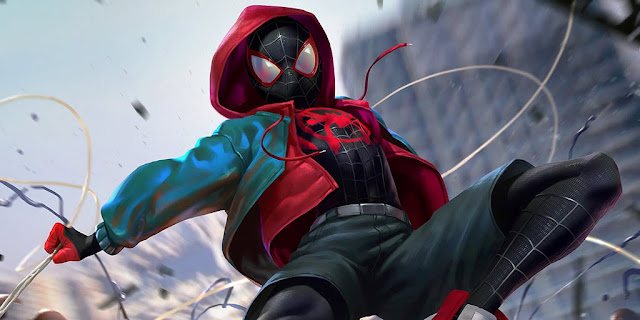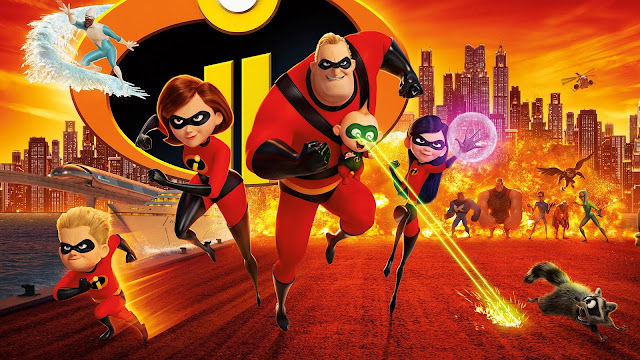"The Greatest Showman" Heroic Analysis of P.T. Barnum
Whether or not the film "The Greatest Showman" accurately captures who the IRL P.T. Barnum was as a person, Hugh Jackman's portrayal of the fictionalized version of Barnum is a character that is good. He has desires that are good, conflicts and inner struggles that cause him to change for the better by the end of the film, and he takes courageous leaps for himself, his family, and for others. "The Greatest Showman," directed by Michael Gracey, is a film rich with character and struggle - characters who have lived lives of oppression and strife, characters who struggle to ascertain what it is that they want, and a protagonist who brings it all together in a fascinating journey.
This makes it easy for viewers to relate, even if they were not born with a highly rare genetic condition, or a beard. After really marinating on all of the movies that I loved from 2017, and what a year for movies it was, I want to discuss my personal favorite film of the year and explore what makes Barnum, or not, at least in regard to the Monomyth. This one was challenging at first, but the more I thought about it, the more Barnum was a hero, though he does miss some essential moments that define, at least for me, of what completely makes up a hero. This will be my first Heroic Analysis where I don't know if the character I discuss is all that much a hero, in the end.
DEPARTURE & SEPARATION
If we look at Barnum's Ordinary World, he was raised by a poor tailor and falls in love with the daughter of a rich snob for whom his dad works. Seeing how his father lives and is treated, Barnum, at a young age, learns to retreat inside of his own imagination. He simply dreams for a better life, and his desires are defined by his current poverty, which sets up a later Atonement with his Father that the film does not do anything to achieve once his father dies early in the film. Barnum accomplishing his dreams does not simply mean that he has Atoned, and it is difficult to place where this step would land metaphorically for the character.
Getting back on track, his would-be Call to Adventure is plagued by a confused desire: is it that he seeks to live a life of wealth, or does he find his wealth from those that he loves, namely his wife and daughters. He works towards material wealth, success, and fame of his name, under the rouse that this is for his family. However, his daughters and wife do not appear to care, and they are happy just being together. Having these dreams for his father or his family would have made him more heroic, for they represent purposes other than his self. He does not truly have a call to adventure because he lives his life reaching for this goal, and thus there is also no easily identifiable Refusal to the Call, and for that matter an Acceptance of the Call.
There is, however, a Supernatural Aid for Barnum. The "Freaks" can fill this role, based on their unique differences and qualities. By putting them into the spotlight, Barnum can rise in success, and without them his museum would not have reached the levels of success that it did. Unfortunately, as his motives were purely selfish in the film (he never really displays a true compassion for these people) their use only dings his hero-ship.
If we look at Barnum as a hero, he lacks any real Mentor figure in the film. It would be a stretch to consider Zac Efron's character, Phillip Carlyle, a Mentor, and if anything, it is the other way around, though the two certainly learn from and teach each other.
Considering the narrative, it is not difficult for any character in any story to have a Crossing of the First Threshold moment, because it is the moment most stories truly begin. It is the moment Frodo leaves home, or Luke Tatooine, and in this film, it is moment when Barnum buys the museum. He puts everything out on the line, risking everything he has, to accomplish his dreams.
INITIATION
If someone were to argue that Barnum was a hero, the initiation phase would be the easiest to do so as most characters in stories have overlap. A good story has a character or characters who want something, and they must do something to get that thing that they want, often with friends and opposition. These things tend to be packaged together into Road of Trials, and while on his quest for success Barnum has noticeable Tests (getting the business up and running, convincing the people and the Circus Folk to join), Allies (Family, Circus People, Zach Efron), and Enemies (Father-In-Law, People who hate the Circus People and Barnum's Circus).
If Barnum is the hero, then his wife, Charity Barnum (Michelle Williams), certainly represents his Meeting with the Goddess. She is Barnum's synergy - and is who ultimate allows him to defeat his Woman as Temptress, who is represented by the character Jinny Lind (Rebecca Ferguson / Loren Allred singing). Barnum realizes his love for his wife, and his two little Goddesses in his daughters, and realizes that he has had what he desired the entire time. Even as a young kid, Charity Barnum served as the foundation for his dreams. His love for her made him stronger, and made him willing to endure anything. Lind represented everything he thought he wanted - fame, material wealth, and everything comes with the life he talked Carlyle out of!
In the moments of the film when he realizes that Lind is in love with him, and when she kisses him on stage causing the tabloids to go crazy, he begins to enter his Belly of the Whale. His wife and family leave him, his museum is burned down, and he has nothing left but self-pity. It is this moment that allows him to reach an Apotheosis, where he has nothing else to lose and must fight for what really matters in his life, his family. He ultimate achieves success in this and re-obtains his success and his family - which is perfect Combining of the Two Worlds through gaining his Ultimate Boon.
RETURN
Many heroes don't have a true to form return, in the classic sense. However, Barnum does hit some of the notes.
Carlyle gives him aid and helps him restore the museum, which also enables Barnum to return to his commercial success. This can, though it is a stretch, be considered a form of Magic Flight for Barnum. Carlyle, with the money he has saved, allows Barnum to symbolically return to his normal, and his normal is a perfect marriage of the two worlds. Alternatively, maybe Carlyle more or less provided a Rescue from Without.
Barnum Crosses the Return Threshold, I believe, when he faces his Father-in-Law to return to his wife. When she forgives him, he is on the path to healing. I often struggle really nailing the Return Threshold, so if you disagree here, I am curious to see what you think about this step for Barnum in the comments. Let me know what you think.
Once all this is set in place, he is then the Master of his Two Worlds, and he has the Freedom to Live.
MY THOUGHTS / FINAL OPINION
If Barnum is not a true-to-archetype Hero, then what kind of character is he? I would make the claim that this is an obvious Rags to Riches story, with heroic elements blended in. Many stories tend to fall into one archetype or another, and the Rags to Riches archetype fits here much more than the Heroic Journey - though I like the idea of a heroic Rags to Riches. Barnum is a poor character in the outset of the film, but by the films conclusion, he is rich - not because of the financial success he earns, but because he learns to value what he has had all along - his family. In Rags to Riches stories, the hero usually has what he wants and / or needs the entire time, but it takes the narrative to uncover the hero's knowledge of that.
With all, I absolutely LOVED this movie. It was like a musical on the stage, but for the screen, based on how it was directed and filmed. This movie would KILL as a musical, I feel, and it would certainly have been cool to see the film in this way first, then made into a movie. Though I am pretty sure that Zach Efron, Zendaya and some of the other big-name talent wouldn't have been able to do a show like this, so some of the magic would not exist the same way it does in the movie.
The music in this movie is the real bread and butter. It is, after all, a musical. Every single song is brilliant to me, and there is not a song on the album I would skip. I do wish the producer or whoever finalized the album upped the volume on Hugh Jackman's voice. Sometimes, when he is singing low, his voice is swallowed. I turned the volume up to hear his voice on "The Greatest Show" and when the choir comes in I nearly went deaf. "Ladies and Gents, this is the moment you've waited for" ... "WOOAH OOAH." But, I digress. See this movie in theaters if you still can, and support the music because it sounds great.









Comments
Post a Comment